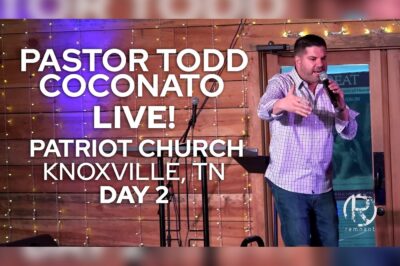My personal, spiritual journey has all been within the fellowship of just one church family, the Foursquare Church.
It is one of several, historic, Pentecostal denominations which grew out of the Azusa Street Revival in Los Angeles in the early 1900s. As a matter of fact, we are celebrating our Centennial this year and several thousand pastors and church leaders are meeting next week in Anaheim, California for spiritual renewal, connection and direction.
The word “foursquare” is a biblical term that is not commonly used today. But in the 1920s it was frequently used to denote something that was well-balanced and not easily moved or changed. Accordingly, it was used by our founders to indicate the balanced, unchanging, four-fold ministry of Jesus, as the “Savior, Baptizer with the Holy Spirit, Healer and Soon-Coming King.”
The spiritual vitality of these facets of our Lord’s ministry continues to motivate our mission and ministries. We are Protestant by choice, evangelical in doctrine and seek biblically-Pentecostal practices.
Where is Pentecost Mentioned in the Bible?
Pentecost (also known as the Feast of Harvest or the Feast of Weeks) was a biblical name for one of the annual observances prescribed by God for the children of Israel, in Leviticus 23. It was one of three “command performances” where God’s Law required all the males of Israel to assemble before Him (Ex. 23:14-17).
The name itself comes from the Greek word pentekoste which means fiftieth. The feast was to be celebrated one day after the seventh week (50 days) following the prior feast of Unleavened Bread (Passover), see Exodus 23:15-21.
On that Day of Pentecost
On this particular 50th-day observance, the Holy Spirit was poured out upon followers of Jesus, as He promised His apostles, just prior to His ascension into heaven (Acts 1:4-8).
“…You will receive power when the Holy Spirit has come upon you and you shall be My witnesses both in Jerusalem and in all Judea and Samaria, and even to the remotest part of the earth” (Acts 1:8; NASB).
Dozens and dozens of disciples (120 are mentioned) were assembled together in an upper room in Jerusalem, and
“Suddenly, a sound like the blowing of a violent wind came from heaven and filled the whole house where they were sitting. They saw what seemed to be tongues of fire that separated and came to rest on each of them. All of them were filled with the Holy Spirit and began to speak in other tongues as the Spirit enabled them” (Acts 2:2-4, NIV).
Among those gathered for celebration, on that day, were “both Jews and proselytes”–even “Arabs” (2:8-12). Together, they heard the Spirit-filled believers “in our own tongues speaking of the mighty deeds of God.”
While many were “amazed and perplexed” by this supernatural demonstration, others mocked and suggested these believers were “full of sweet wine.” To this public ridicule, Peter (who had denied even knowing Jesus three times on the night of His betrayal), stood up, raised his voice and boldly addressed the crowd ( Acts 2:14-41).
His history-centered sermon began with the prophets and joined their prophecies with the miracles, wonders and signs of Jesus, “which God performed through Him in your midst” (v. 22). Peter pointedly accused them of nailing Him “to a cross by the hands of godless men and put Him to death.” His Scripture-filled proclamation concluded with this certainty: “God has made Him both Lord and Christ–this Jesus whom you crucified” (2:36).
The Gift of the Holy Spirit
Luke, the non-Jewish author of the book of Acts, records that the hearts of the Jews “were pierced” and they urgently asked Peter and the rest of the apostles, “Brethren, what shall we do?” Peter responded, “Repent, and each of you be baptized in the name of Jesus Christ for the forgiveness of your sins, and you will receive the gift of the Holy Spirit” (2:37-38, bold added).
Repent means to “turn around” or “change your mind.” Here, he is urging his fellow Jews to change their understanding and attitude about Jesus, as the prophesied Christ or Messiah. Being baptized “in the name of Jesus Christ” is to confess Him to be all that His name and titles denote. Whether as part of our confession of faith, authorization of prayer to the Father in heaven (John 16:23-24) or in the proclamation of spiritual power over the enemy, let us boldly ask of the Father in the name of Jesus, His Son.
The promised “gift of the Holy Spirit” was not just for those in Jerusalem on that day of Pentecost. It is also for you and me today–all who are “far off” in the sequence of God’s timing and purposes. The gift of the Holy Spirit is to equip and empower spirit-filled living and spirit-led service “…for all whom the Lord our God will call” (v. 39)
Editor’s Note: This is part one of a two-part series.
Gary Curtis served in full-time ministry for 50 years, the last 27 years of which he was part of the pastoral staff of The Church on The Way, the Van Nuys, California, Foursquare church. Now retired, Gary continues to write a weekly blog at worshipontheway.wordpress.com and frequent articles for digital and print platforms.







Leave a Comment
You must be logged in to post a comment.